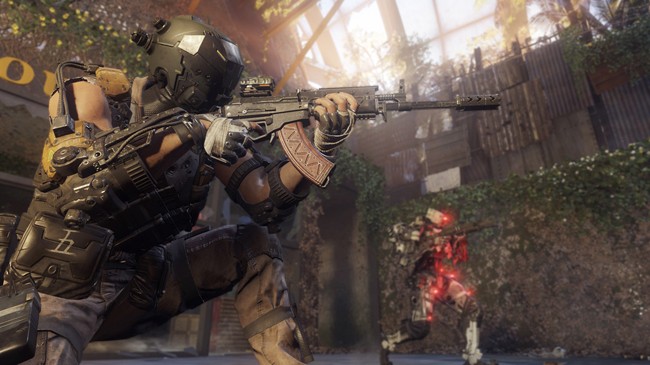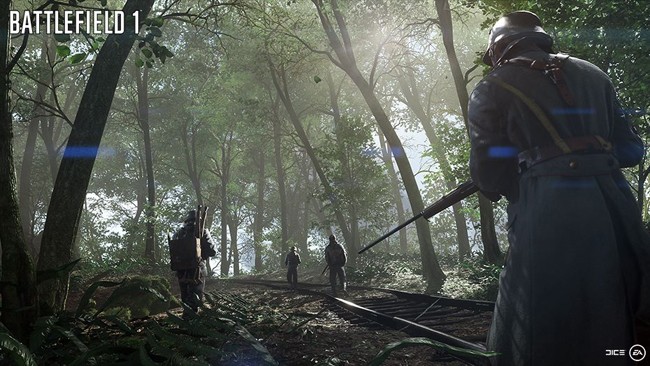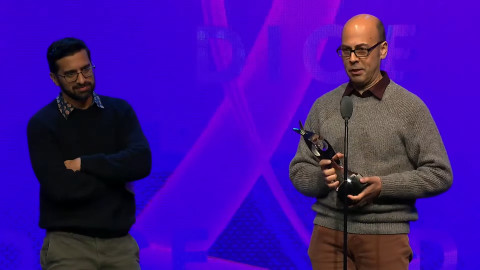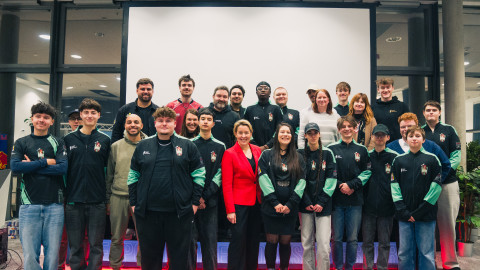
It seemed Activision had finally learned from its mistakes when the publisher released Call of Duty: WWII last year. The game was more than a simple “return to the roots” World War II shooter, managing to weave a surprisingly emotional story into an action-packed campaign mode that still felt modern, along with balanced and engaging competitive multiplayer. After years of diminishing returns, the days of near-future science-fiction were behind us. The possibilities were essentially endless.
That was, of course, until it was reported that Activision and Treyarch would be returning to well-tread territory in 2018 with the release of Call of Duty: Black Ops 4. The strides made toward covering historic battles with deft and care would be forgotten in mere months, with advanced weaponry and cybernetic implants once again coming out of the woodwork. Players waiting for something truly new from the Call of Duty series would have to wait another year, because that “Black Ops” name is simply too valuable to pass up. But if our major first-person shooters don’t address franchise fatigue, they’re going to see diminishing returns in a hurry.
Same old, same old
Annoyed players have been complaining about Call of Duty’s lack of originality for years, with the linear campaigns, similar multiplayer, and uninspired “zombies” modes failing to win back those who had already left the series. Occasionally, all the components fell into place well and the game was worth playing regardless of how derivative it was, as was the case with Advanced Warfare in 2014.
The problem came when particular games were too successful, leading to Activision betting all its chips on them in the future. Modern Warfare 2 was quite similar to the original Modern Warfare. By the time the third game rolled around, public opinion started to sour, and the similar Ghosts didn’t fare particularly well at retail. Activision blamed the sales on the low adoption numbers of the new consoles early in their lifespan, but this was deflection – players had just seen the game three times before.
“Annoyed players have been complaining about Call of Duty’s lack of originality for years.”

Treyarch’s Black Ops games have always performed better than other Call of Duty titles, but after seeing what was possible with a 1940s setting in Call of Duty: WWII, returning to the future is going to feel like retreading old ground. It will seem like a cynical decision made by a company more interested in cashing in on name recognition than on delivering a high-quality work, but the irony is that this decision could actuallyhurt Activision’s bottom line. Call of Duty: WWII sold significantly better than Infinite Warfare, seemingly putting the franchise back on track after years of sluggish numbers. Part of that was certainly because the game was well-designed, but it was also because the game was different than any Call of Duty released in the previous decade.
Black Ops 4’s existence is disheartening, but the series’ three-year development cycle means that ball was rolling long before Call of Duty: WWII released. What will be the true test of Activision’s leadership is whether or not the developer gives a second World War II game the green light. Doing so would send Call of Duty back down the same path that brought it where it is today, because players will inevitably get sick of the World War II setting just like they did in the mid-2000s. They didn’t like the game because it was set in World War II: They liked it because the last few games weren’t set in World War II.
Learning the wrong lessons
Unfortunately, Electronic Arts’ upcoming Battlefield game seems to be taking the bait. Reportedly titled “Battlefield V,” the game will be returning to World War II, which is where DICE’s series started more than a decade ago. For the group of fans who can be reeled in by nostalgia or simply wanted to see a World War II game on the scale that Battlefield provides, this is fine news. But for everyone else, there is cause for concern. The move reflects Electronic Arts’ lack of trust in new ideas and its reliance on using previously acclaimed concepts as a crutch. We saw it with the “new” Star Wars: Battlefront in 2015, which was, in many ways, a reskinned Battlefield game. We even saw it with Mirror’s Edge: Catalyst, as the publisher sought to win over the game’s cult fans without understanding that the original’s novel ideas couldn’t just be reproduced.
“Unfortunately, Electronic Arts’ upcoming Battlefield game seems to be taking the bait.”

Franchise fatigue isn’t limited to Call of Duty and Battlefield – in fact, it can be seen in nearly every shooter that didn’t wrap up at the end of its first trilogy. Halo suffered from it with the reintroduction of the Covenant enemies in Halo 4, locking players into another three-game narrative that would inevitably cover well-tread territory. Gears of War 4 was particularly guilty of this, essentially renaming the enemies from the previous trilogy and, in an incredibly uninspired move, placing you in the shoes of the previous protagonist’s son.
A better way
It’s an unfortunate situation that isn’t wholly unique to shooters, but other genres have been much more willing to try new ideas without abandoning their games’ key pillars. Resident Evil began its life as a survival-focused horror series before pivoting to an action series, and eventually turning into a first-person mix of the two with Resident Evil 7. It didn’t feel like a game hoping to play to your nostalgia, but one that could feasibly have succeeded without even needing “Resident Evil” on the box. It even exists alongside the Resident Evil: Revelations games, which use a completely different gameplay style and still manages to feel like it belongs in the series.
Perhaps that level of reinvention isn’t necessary with Call of Duty or Battlefield, as their respective formulas have shown small cracks rather than enormous tears. But the entire genre could benefit if game companies stopped asking themselves, “What haven’t we done in a long time,” and instead asked, “What have we never done before?” There are still ample opportunities for us to be surprised by first-person shooters, but we have to stop looking to the past in order to find them.

Sort by:
Comments :0






